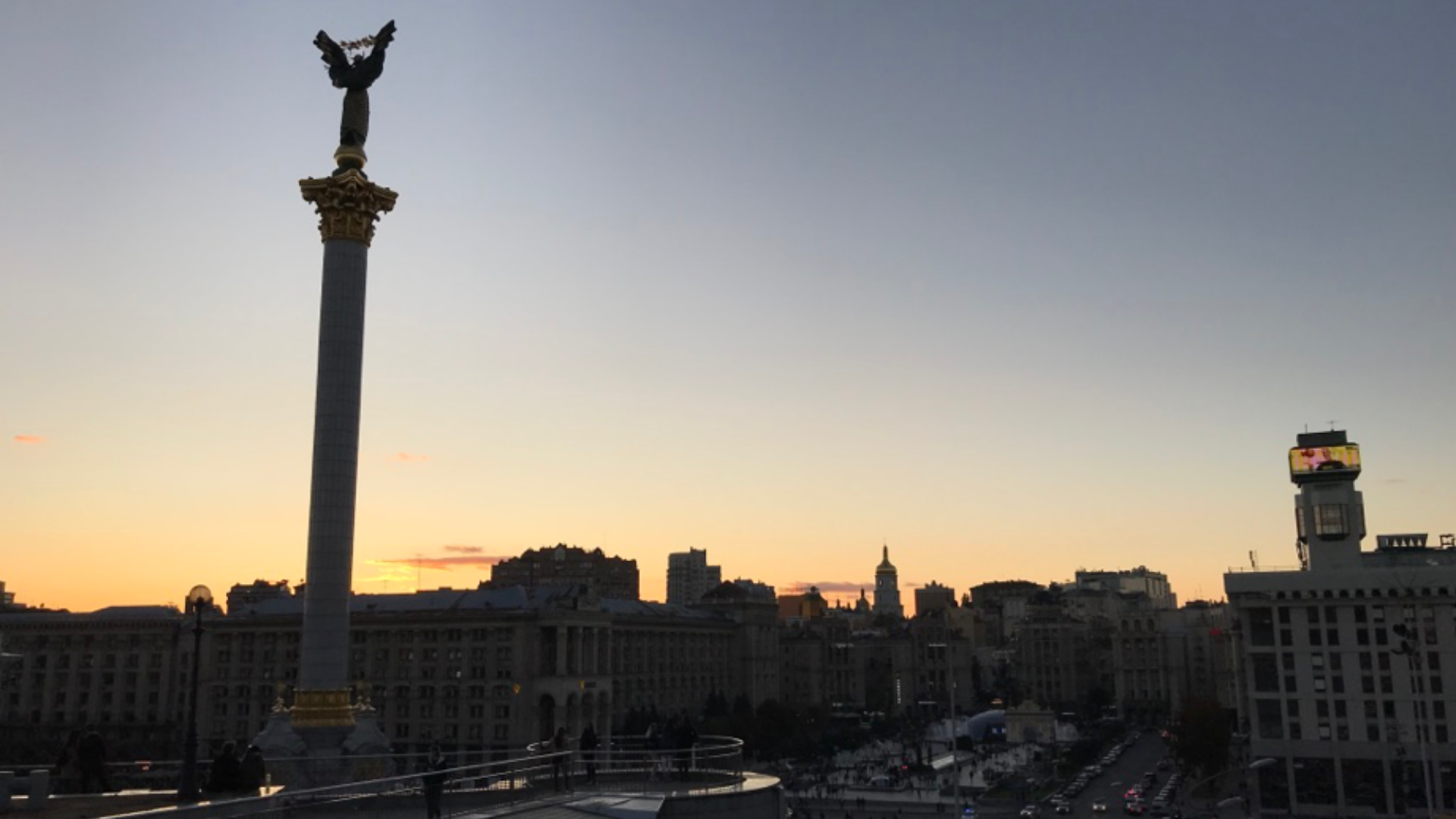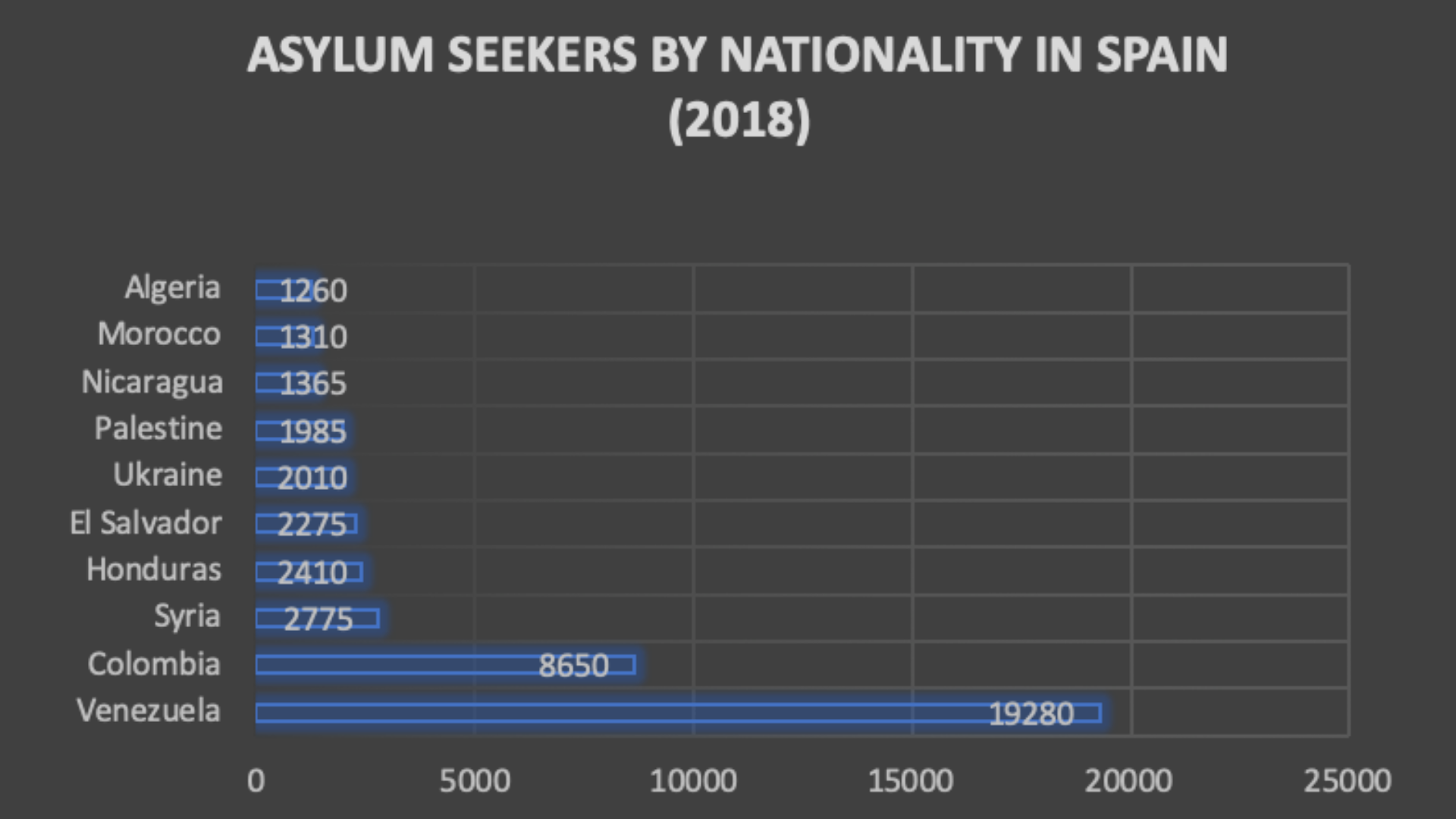Ukrainian refugees. A forgotten conflict at the EU border
Ukrainian refugees. A forgotten conflict at the EU border
Joan De Lara, UPF alumni and specialist in migration processes, explains us the keys to understanding one of the forgotten conflicts in today’s Europe
In 2015, I started to work for the defence of asylum seekers’ rights in Barcelona. After 4 years of professional experience, I decided to take step forward in order to gain direct knowledge about what was happening in different territories of origin, transit and destination. In order to do it, I decided to join the College of Europe, one of the most emblematic centres of European studies in the European Union. Thanks to this institution, I had the chance to visit several institutions and organizations and talk with some of the principal actors involved in the on-going conflict (UNHCR, Red Cross, OSCE, member of the Ukrainian Parliament, Former Ukrainian Minister of Foreign Affairs, Think Tanks representatives, etc.). From the knowledge acquired, I decided to write a small summary in order to briefly understand the actual situation in Ukraine and know which are the main consequences in Catalonia.
"In 2018, 54,065 people requested asylum in Spain. Of all of them, 2.010 were from Ukraine. This country of origin is among the top ten in the ranking of applicants for international protection in Spain."
In 2018, 54,065 people requested asylum in Spain. Of all of them, 2.010 were from Ukraine. Although it is not comparable with the number of petitions registered by Venezuelan nationals (12,280), this country of origin is among the top ten in the ranking of applicants for international protection in Spain.
The registration of new applications has been constant since 2014. In the following article I summarize the conflict very briefly and I exemplify the military service as one of the main causes of forced displacement. Finally, I refer to the challenges faced by the Ukrainians in their new hosting territory.
The Euromaidan
In February 2010, Victor Yanukovych was proclaimed President of Ukraine. Known by the population for his former role as prime minister, Yanukovych seemed to generate reliable expectations for the first time on a future integration of the country into the European Union. However, the steps to be followed to become part of the club of 28 (27 now because of Brexit) required – and require – a different sort of preliminary approaches and measures. In that case, the most relevant, without a doubt, was an Association Agreement with the EU. It seemed that everything was sold, and it was only a matter of time sealing this pact, but by the end of 2013 things changed suddenly.

The Independence Square in Kiev, September 2019.
In November 2013, after long hours of meeting with representatives of the EU, Yanukovych announced his refusal to sign the agreement. Based on the suspicions about pressures from the Kremlin to avoid this signature, the population responded. At first, a small group of people, then thousands, filled the square of independence of Kiev in what became known as Euromaidan. The brutal intervention of the police and the use of snipers increased, without a doubt, the degree of intensity of the protests. What had begun as a manifestation turned into a real threat against the established power. Since then, the main results and events have been:
- More than one hundred deaths registered during protests in the place of independence.
- Crimea’s annexation by Russia in March 2014.
- The shoot down of a Malaysian plane with 298 passengers in eastern Ukraine in July 2014.
- The decision of President Yanukovych to flee to the Russian city of Rostov of the Don.
- The onset of a cruel war for independence and possible annexation of eastern Ukrainian territories in Russia (also known as the Donbass War), with more than 10,000 deaths among soldiers of the Ukrainian army, pro-Russians and civilians’ militiamen.
- For now, 457 kilometres of the contact line between the two sides are theoretically under a “ceasefire” signed in the 2015 Minsk Agreements. However, violations of this agreement are usual.
From deserters to asylum seekers
By the end of 2018, it was estimated that about 1.5 million Ukrainians had moved internally and about 93 thousand had been forced to go abroad. Among others, one of the reasons why some people have been forced to flee outside their borders is the imposition of compulsory military service for men aged between 18 and 25. This obligation has very few exceptions, and penalties for not participating in it may involve imprisonment of between 3 and 5 years. This means, on many occasions, the hasty departure of entire families to other places.
"By the end of 2018, it was estimated that about 1.5 million Ukrainians had moved internally and about 93 thousandhad been forced to go abroad."
With regard to Spain, 2,010 Ukrainian requests for asylum were submitted in 2018. Specifically, in Catalonia, the data reveals that 283 requests were registered. Between January and August of 2019, the data of the Ministry of the Interior account that the Spanish State has received 1,733 new applications.
Regarding the recognition figures, these are proportionally very small. Of the 2,805 responses given in 2018 to Ukrainian nationals, only 180 supposed some kind of protection (70 refugee statutes and 110 subsidiary protections). To date, it is not possible to obtain reliable statistics on what were the specific reasons for persecution mentioned to request asylum for the last 5 years but, however, it is known that 4,300 people were still waiting of response at the end of 2018.

By the end of 2018, it was estimated that about 1.5 million Ukrainians had moved internally and about 93 thousand had been forced to go abroad.
Challenges
Currently, the challenges faced by people arriving from Ukraine are complex. To the uncertainty about the grant or not of some type of protection, we have to add other factors such as the serious difficulties in access to housing.
In the workplace, a mention should be made of the possibility of working after 6 months if you have not received an answer about the asylum application. However, finding a decent job is very complicated. Difficulties in language learning add to the reluctance of many companies when it comes to hiring asylum-seekers or refugees and ignoring the legal framework that protects them. This forces them many times to find work in alternative sectors, often under precarious conditions.
"Difficulties in language learning add to the reluctance of many companies when it comes to hiring asylum-seekers or refugees and ignoring the legal framework that protects them."
With the arrival of Vlodímir Zelenski to power in May 2019, much of the population seemed now to have hopes for a possible peace and a real renewal of the institutions. However, the possible links between the president and one of the country’s principal oligarchs, Ihor Kolomoisky, are beginning to shake those expectations. Meanwhile, those who fleed for not going to war and have received the refusal of their asylum application wait, in nobody’s land, to see what the future holds for them.
